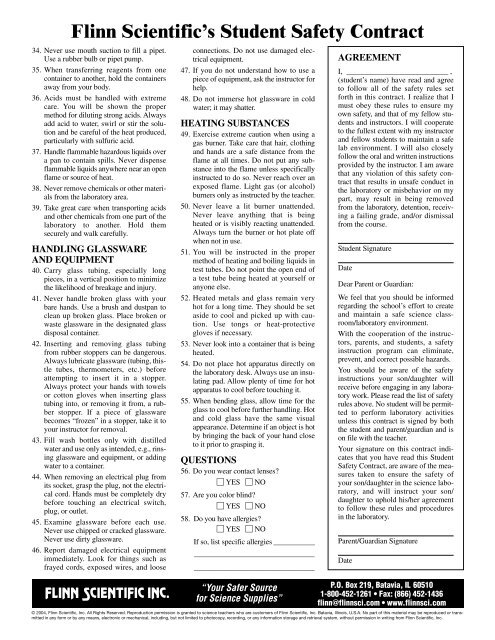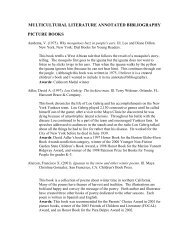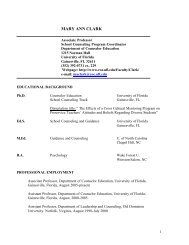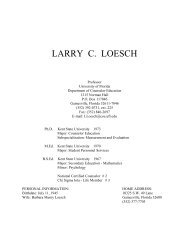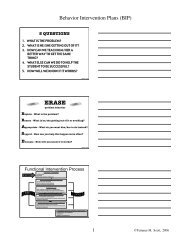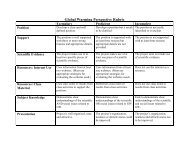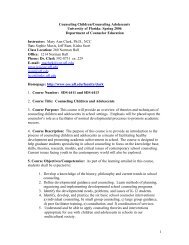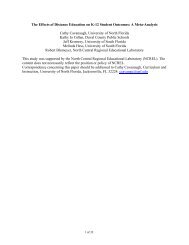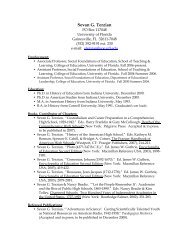Safety Contract-Permission Teac - Flinn Scientific
Safety Contract-Permission Teac - Flinn Scientific
Safety Contract-Permission Teac - Flinn Scientific
Create successful ePaper yourself
Turn your PDF publications into a flip-book with our unique Google optimized e-Paper software.
<strong>Flinn</strong> <strong>Scientific</strong>’s Student <strong>Safety</strong> <strong>Contract</strong><br />
34. Never use mouth suction to fill a pipet.<br />
Use a rubber bulb or pipet pump.<br />
35. When transferring reagents from one<br />
container to another, hold the containers<br />
away from your body.<br />
36. Acids must be handled with extreme<br />
care. You will be shown the proper<br />
method for diluting strong acids. Always<br />
add acid to water, swirl or stir the solution<br />
and be careful of the heat produced,<br />
particularly with sulfuric acid.<br />
37. Handle flammable hazardous liquids over<br />
a pan to contain spills. Never dispense<br />
flammable liquids anywhere near an open<br />
flame or source of heat.<br />
38. Never remove chemicals or other materials<br />
from the laboratory area.<br />
39. Take great care when transporting acids<br />
and other chemicals from one part of the<br />
laboratory to another. Hold them<br />
securely and walk carefully.<br />
HANDLING GLASSWARE<br />
AND EQUIPMENT<br />
40. Carry glass tubing, especially long<br />
pieces, in a vertical position to minimize<br />
the likelihood of breakage and injury.<br />
41. Never handle broken glass with your<br />
bare hands. Use a brush and dustpan to<br />
clean up broken glass. Place broken or<br />
waste glassware in the designated glass<br />
disposal container.<br />
42. Inserting and removing glass tubing<br />
from rubber stoppers can be dangerous.<br />
Always lubricate glassware (tubing, thistle<br />
tubes, thermometers, etc.) before<br />
attempting to insert it in a stopper.<br />
Always protect your hands with towels<br />
or cotton gloves when inserting glass<br />
tubing into, or removing it from, a rubber<br />
stopper. If a piece of glassware<br />
becomes “frozen” in a stopper, take it to<br />
your instructor for removal.<br />
43. Fill wash bottles only with distilled<br />
water and use only as intended, e.g., rinsing<br />
glassware and equipment, or adding<br />
water to a container.<br />
44. When removing an electrical plug from<br />
its socket, grasp the plug, not the electrical<br />
cord. Hands must be completely dry<br />
before touching an electrical switch,<br />
plug, or outlet.<br />
45. Examine glassware before each use.<br />
Never use chipped or cracked glassware.<br />
Never use dirty glassware.<br />
46. Report damaged electrical equipment<br />
immediately. Look for things such as<br />
frayed cords, exposed wires, and loose<br />
connections. Do not use damaged electrical<br />
equipment.<br />
47. If you do not understand how to use a<br />
piece of equipment, ask the instructor for<br />
help.<br />
48. Do not immerse hot glassware in cold<br />
water; it may shatter.<br />
HEATING SUBSTANCES<br />
49. Exercise extreme caution when using a<br />
gas burner. Take care that hair, clothing<br />
and hands are a safe distance from the<br />
flame at all times. Do not put any substance<br />
into the flame unless specifically<br />
instructed to do so. Never reach over an<br />
exposed flame. Light gas (or alcohol)<br />
burners only as instructed by the teacher.<br />
50. Never leave a lit burner unattended.<br />
Never leave anything that is being<br />
heated or is visibly reacting unattended.<br />
Always turn the burner or hot plate off<br />
when not in use.<br />
51. You will be instructed in the proper<br />
method of heating and boiling liquids in<br />
test tubes. Do not point the open end of<br />
a test tube being heated at yourself or<br />
anyone else.<br />
52. Heated metals and glass remain very<br />
hot for a long time. They should be set<br />
aside to cool and picked up with caution.<br />
Use tongs or heat-protective<br />
gloves if necessary.<br />
53. Never look into a container that is being<br />
heated.<br />
54. Do not place hot apparatus directly on<br />
the laboratory desk. Always use an insulating<br />
pad. Allow plenty of time for hot<br />
apparatus to cool before touching it.<br />
55. When bending glass, allow time for the<br />
glass to cool before further handling. Hot<br />
and cold glass have the same visual<br />
appearance. Determine if an object is hot<br />
by bringing the back of your hand close<br />
to it prior to grasping it.<br />
QUESTIONS<br />
56. Do you wear contact lenses?<br />
YES NO<br />
57. Are you color blind?<br />
YES NO<br />
58. Do you have allergies?<br />
YES NO<br />
If so, list specific allergies ___________<br />
________________________________<br />
________________________________<br />
“Your Safer Source<br />
for Science Supplies”<br />
AGREEMENT<br />
I, ___________________________ ,<br />
(student’s name) have read and agree<br />
to follow all of the safety rules set<br />
forth in this contract. I realize that I<br />
must obey these rules to ensure my<br />
own safety, and that of my fellow students<br />
and instructors. I will cooperate<br />
to the fullest extent with my instructor<br />
and fellow students to maintain a safe<br />
lab environment. I will also closely<br />
follow the oral and written instructions<br />
provided by the instructor. I am aware<br />
that any violation of this safety contract<br />
that results in unsafe conduct in<br />
the laboratory or misbehavior on my<br />
part, may result in being removed<br />
from the laboratory, detention, receiving<br />
a failing grade, and/or dismissal<br />
from the course.<br />
Student Signature<br />
Date<br />
Dear Parent or Guardian:<br />
We feel that you should be informed<br />
regarding the school’s effort to create<br />
and maintain a safe science classroom/laboratory<br />
environment.<br />
With the cooperation of the instructors,<br />
parents, and students, a safety<br />
instruction program can eliminate,<br />
prevent, and correct possible hazards.<br />
You should be aware of the safety<br />
instructions your son/daughter will<br />
receive before engaging in any laboratory<br />
work. Please read the list of safety<br />
rules above. No student will be permitted<br />
to perform laboratory activities<br />
unless this contract is signed by both<br />
the student and parent/guardian and is<br />
on file with the teacher.<br />
Your signature on this contract indicates<br />
that you have read this Student<br />
<strong>Safety</strong> <strong>Contract</strong>, are aware of the measures<br />
taken to ensure the safety of<br />
your son/daughter in the science laboratory,<br />
and will instruct your son/<br />
daughter to uphold his/her agreement<br />
to follow these rules and procedures<br />
in the laboratory.<br />
Parent/Guardian Signature<br />
Date<br />
P.O. Box 219, Batavia, IL 60510<br />
1-800-452-1261 • Fax: (866) 452-1436<br />
flinn@flinnsci.com • www.flinnsci.com<br />
© 2004, <strong>Flinn</strong> <strong>Scientific</strong>, Inc. All Rights Reserved. Reproduction permission is granted to science teachers who are customers of <strong>Flinn</strong> <strong>Scientific</strong>, Inc. Batavia, Illinois, U.S.A. No part of this material may be reproduced or transmitted<br />
in any form or by any means, electronic or mechanical, including, but not limited to photocopy, recording, or any information storage and retrieval system, without permission in writing from <strong>Flinn</strong> <strong>Scientific</strong>, Inc.


